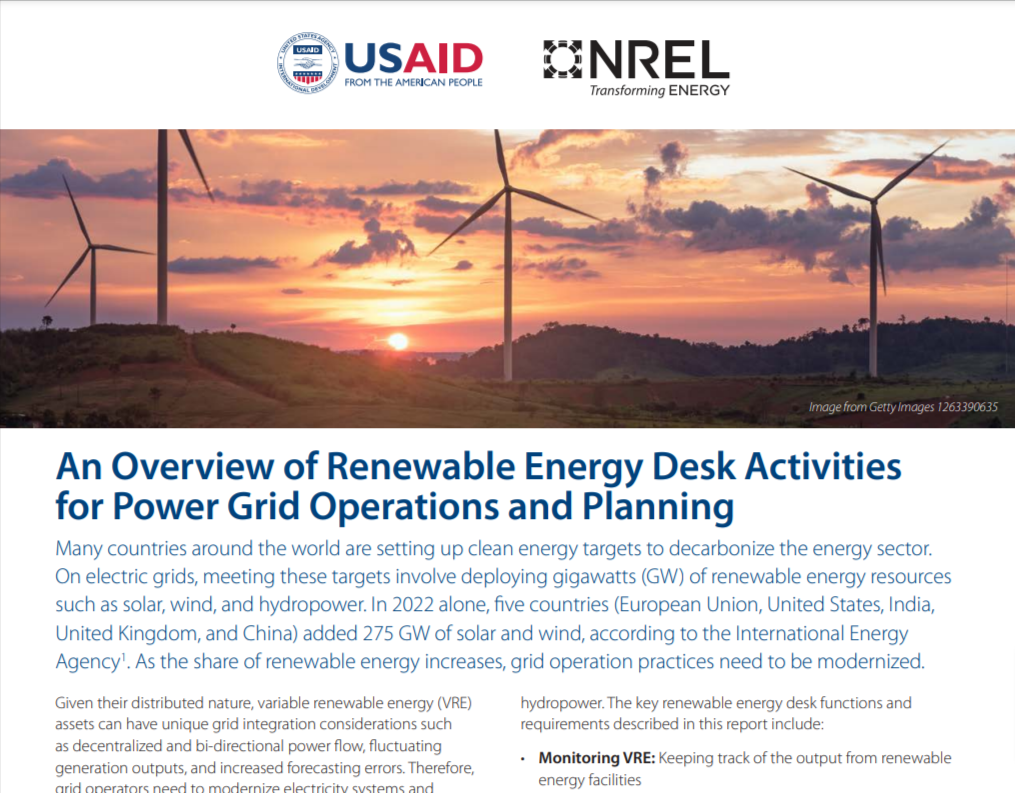 |
Title: An Overview of Renewable Energy Desk Activities for Power Grid Operations and Planning Synopsis: Many countries around the world are setting up clean energy targets to decarbonize the energy sector. On electric grids, meeting these targets involve deploying gigawatts (GW) of renewable energy resources such as solar, wind, and hydropower. In 2022 alone, five countries (European Union, United States, India, United Kingdom, and China) added 275 GW of solar and wind, according to the International Energy Agency1 . As the share of renewable energy increases, grid operation practices need to be modernized. |
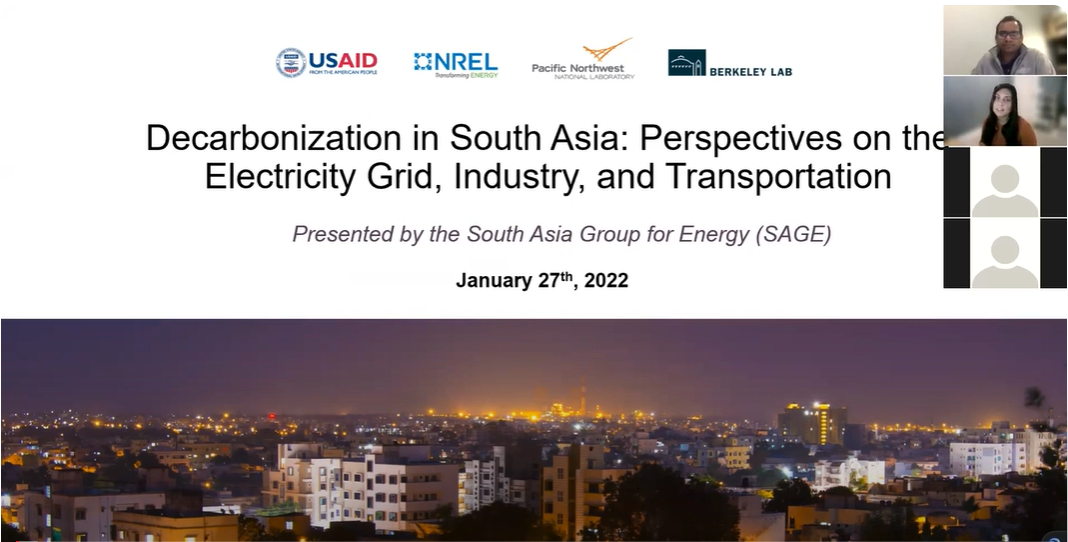 |
Synopsis: As South Asia is experiencing a significant growth in emissions due to increasing economic development, they are still poised to play a major role in designing a low-carbon future. This webinar provides an introduction to the South Asia Group for Energy, a regional context for decarbonization, and South Asia’s decarbonization strategies in the power, transport, and industry sectors. |
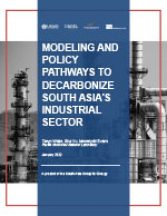 |
Title: Modeling and Policy Pathways To Decarbonize South Asia’s Industrial Sector Synopsis: The industrial sector is responsible for one-third of global greenhouse gas emissions, and industrial decarbonization will be an essential component of limiting emissions and mitigating climate change (Rissman et al., 2020). |
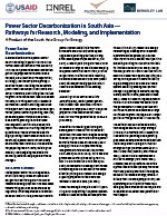 |
Synopsis: Decarbonization of the power sector has far-reaching impacts in terms of the further decarbonization of the economy. In many comprehensive decarbonization pathways proposed for the world and for India, electrification of transportation, buildings, and industry is the principal solution to decarbonizing those sectors. |
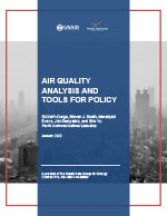 |
Title: Air Quality Analysis and Tools for Policy Synopsis: South Asia records some of the worst air pollution in the world, containing 84% of Asia’s most polluted cities. Particulate and gaseous emissions from various anthropogenic and natural sources contribute to poor air quality in the region, adversely affecting human health and the environment. |
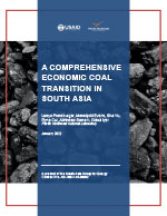 |
Title: A Comprehensive Economic Coal Transition in South Asia Synopsis: South Asian countries vary significantly in their levels of coal use. This section provides brief overviews of countries and details on coal use in addition to key metrics. |
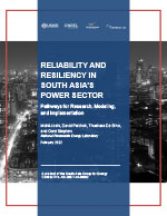 |
Title: Reliability and Resiliency in South Asia’s Power Sector Synopsis: Power systems around the world are changing because of the low cost of clean energy resources and a focus on decarbonization. |
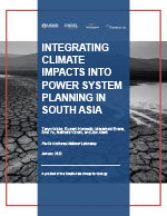 |
Title: Integrating climate impacts into power system planning in south asia Synopsis: This report was prepared as an account of work sponsored by an agency of the United States Government. Neither the United States Government nor any agency thereof, nor Battelle Memorial Institute, nor any of their employees, makes any warranty, express or implied, or assumes any legal liability or responsibility for the accuracy. |
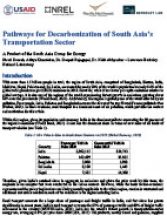 |
Title: Pathways for Decarbonization of South Asia’s Transportation Sector Synopsis: With more than 1.5 billion people in total, the region of South Asia, comprised of Bangladesh, Bhutan, India, Maldives, Nepal, Pakistan and, Sri Lanka, accounted for nearly 20% of the world’s population but only 8.6% of the global total greenhouse gas (GHG) emissions in 2018. |
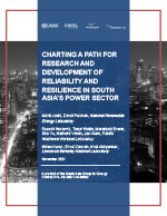 |
Synopsis: Power systems in South Asia are rapidly evolving to increase reliability and resilience in the face of climate change impacts, continued demand growth, emerging technologies, and increased renewable energy generation. |
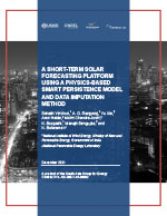 |
Synopsis: Electrical energy plays a vital role in our socio-economic activity; therefore, ensuring the reliability of the electric grid is critical—from generation to transmission to distribution. |
 |
Synopsis: As South Asia is experiencing a significant growth in emissions due to increasing economic development, they are still poised to play a major role in designing a low-carbon future. This webinar provides an introduction to the South Asia Group for Energy, a regional context for decarbonization, and South Asia’s decarbonization strategies in the power, transport, and industry sectors. |


